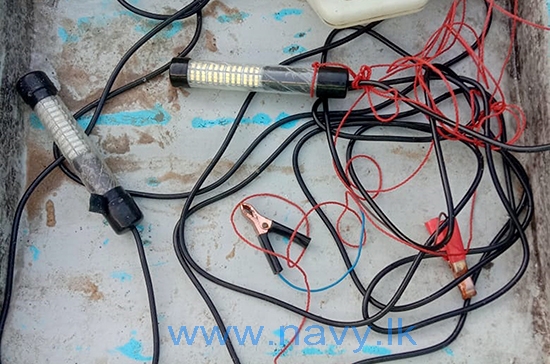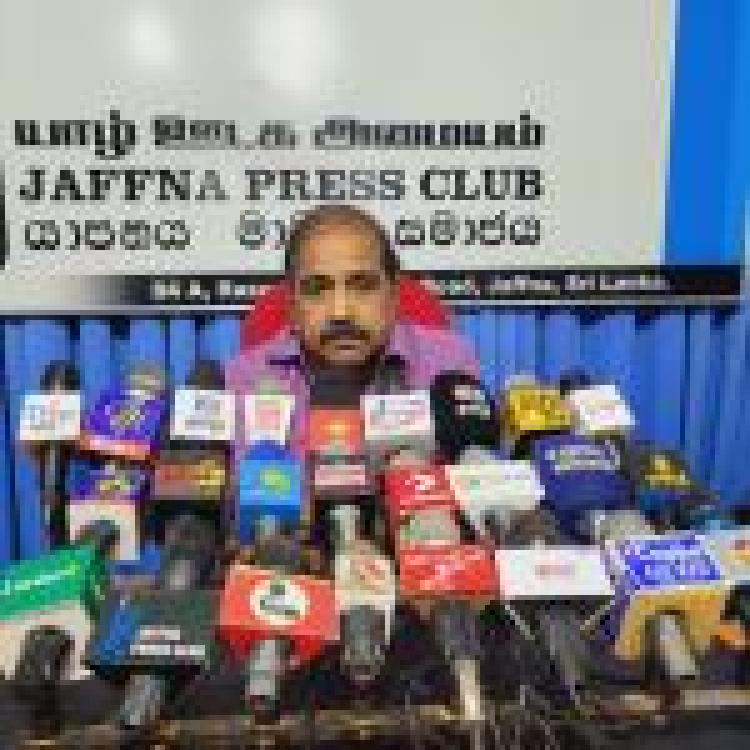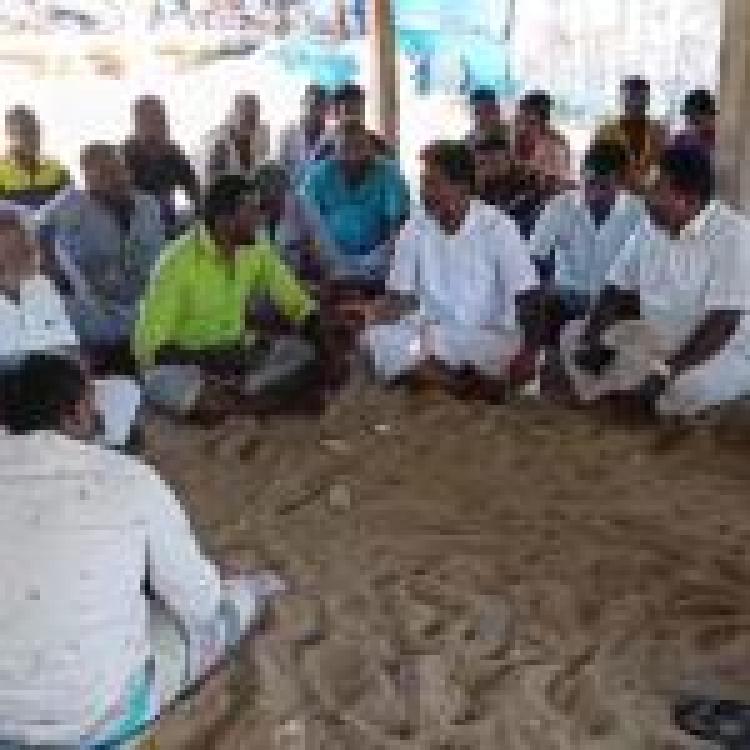.jpg)
Tamil fishermen from Mullaitivu have criticised Sri Lanka's Fisheries Miniser Douglas Devananda, and leader of the notrious government-aligned EPDP paramilitary group, for failing to prevent Indian fishermen from poaching in Sri Lankan waters.
During a district committee meeting, chaired by the fisheries minister, they complained that Indian fishermen were employing illegal fishing methods, including light course fishing and unauthorized nets. Representatives of the fishermen's association and the District Director of the Department of Fisheries and Aquatic Resources stressed that this was devestating their livelihood.
Devananda responded by claiming that the Sri Lankan Navy would take steps to further curb illegal fishing from India and that they should see a decrease in Indian trawlers in the next two months as it is not the fishing season.

Last month Devananda submitted a memorandum to Sri Lanka's cabinet of ministers to establish a voluntary force that would patrol the Northern sea alongside Sri Lanka's navy and ward of Tamil Nadu fishermen. The force – known as the “sea guards” – will see Tamils monitor and assist the Sri Lankan navy in curbing Indian fishing in Northern waters. Devanandan noted that recruitment is aimed at the youth from he families of fishermen associations in the North.
Devanandan has also claimed that Sri Lanka's international partners - India, China and Japan - have come forwards o provide over 4900 million rupees of financial assisance for development of the Northern provice. A media release by the fisheries ministry noted that out of this amount, "500 million rupees will be spent on housing projects, 500 million rupees will be spent to provide relief for people and the balance of 500 million rupees will be spent to provide nets and other accessories to fishermen".
The Sri Lankan government has also proposed "empowering" fishermen communities through an aid programme which would be implemented by Sri Lanka's fisheries ministry, and funded by the World Bank. This programe would see loans provided to rural fishing organisaions based on freshwater resevoirs to boost inland fishing. Comenting on the fishing industry, Devananda noted that there were more than 280,000 families engaged in the fishing sector in Sri Lanka, and 15 districts had been designated as marine fisheries districts, and the inland fishing industry was carried out in all the 24 districts of Sri Lanka.
However, since the end of the armed conflict, Tamil fishing communities have been restricted by Sri Lanka's navy. This past February, Sri Lanka's Nay barred fisherfolk from fishing along the Mathagal Sampilthurai area in Jaffna, warning them that they are banned from fishing close to the coast where a military-run Buddhist vihara is situated.
Restrictions on Tamil fishermen in the North-East continue, despite almost 15 years having passed since the massacres at Mullivaikkal. Last year, the navy imposed restrictions for those intending to fish close to Vadamarachchi, where clearance was needed.
Sri Lanka's Navy has also engaged in the detention and abuse of Tamil Nadu fishermen, many of whom have been extrajudicially killed.
.jpg)


